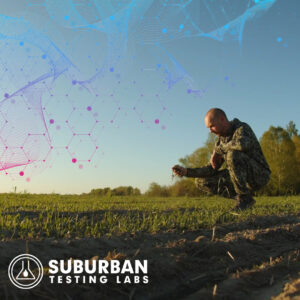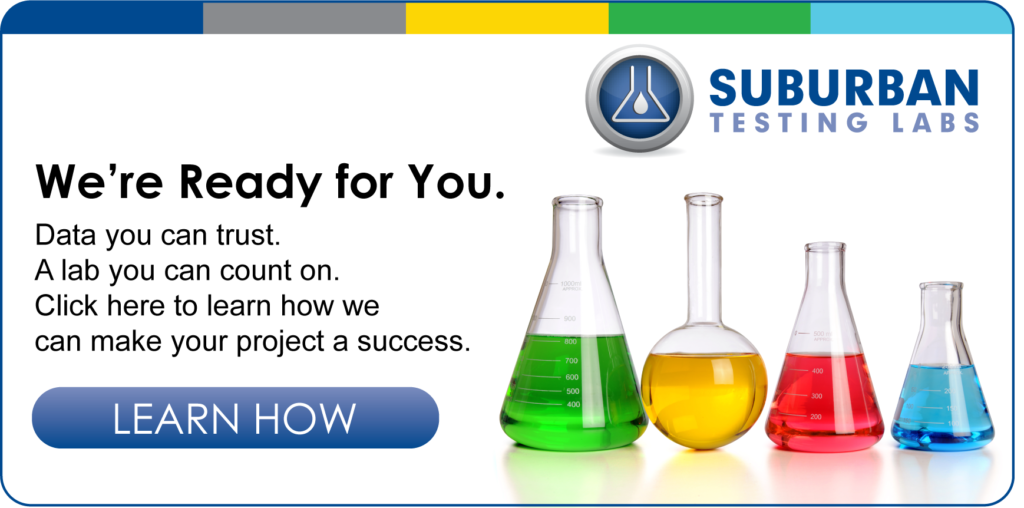Using Biosolids Can Reduce Erosion And Improve Soil Nutrients

Here’s a stark reality: half of our planet’s topsoil has been lost within the last 150 years. The primary causes for this decrease in soil quality continue to impact industries all over the world and involve unwanted erosion and complexities within historical and even modern human agricultural processes.
For example, when European-American settlers initially started to plow for farms in Iowa, they discovered the weather and the area’s geology had combined organic mulch with sand and silt, fostering a nutrient-rich type of soil called loam. This gave Iowa one of the world’s most fertile soils and helped it grow into one of the most significant producers of corn, soybeans, and oats in the country.
But deeper in the ground under Iowa’s agricultural lands, a crisis is now being better understood. The average topsoil depth in Iowa was reduced from around 14-18 inches (35-45cm) at the beginning of the 20th Century to 6-8 inches (15-20cm) near the end. Efforts like frequent tilling and disturbance from advanced farm equipment have enabled wind and natural water sources to take away this priceless resource.
The same situation can be seen on farms around the world, and the effects of soil erosion are worse than just losing fertile land. It’s led to increased pollution and sedimentation in rivers and streams, clogging important waterways and causing declines in fish populations and those of other species. What’s more, degraded lands are also usually less capable of holding onto needed water, which can make floods even more disastrous.
Sustainable land is a necessary condition for quality agriculture, but it’s not easy to know the best ways to ensure there’s quality soil and nutrients for growth that erosion won’t just take away. Luckily, Suburban Testing Labs is aware of one of the world’s best solutions: greater soil fertilization through using biosolids.
Biosolid Fertilization
Biosolids are composed of mostly organic materials created during wastewater treatment that have the potential to be beneficial. One example of reaping the benefits of biosolids is the addition of them to soil for greater nutrients and that help replenish a given set of soil’s organic matter. This is more formally called land application. Biosolids can be helpful when used on agricultural land, for forests, rangelands, or on land in need of nutrient restoration.
There are several potential ways to apply biosolids, but the particular method depends on the type of land in need and the consistency of the biosolids. For instance, liquid biosolids are about 95% water with relatively low amounts of solids. One of the most common application methods is to inject them down into the soil or apply them right on the topsoil with a specialized vehicle or piece of equipment.
Are Biosolids Safe?
According to the Environmental Protection Agency’s description for 40 CFR Part 503, Standards for the Use and Disposal of Sewage Sludge requires that wastewater solids be processed before they are land applied. This processing is referred to as “stabilization” and helps ensure greater safety that minimizes odor generation and destroys pathogens (disease-causing organisms).
Based on several long-term studies across the United States, Biosolids are one of the most understood materials that have ever been regulated by the U.S. Environmental Protection Agency (USEPA). Decades of research have shown that biosolids can be safely applied to soil for the production of crops. The National Academy of Sciences has also evaluated current practices, public health issues, and regulation standards, concluding that using biosolids in the production of crops for human consumption (when practiced in line with federal guidelines and regulations) presents little risk to the consumers, crop yields, and the natural environment.
A Few Benefits of Biosolids
- Better Agricultural Production: The largest parts that form biosolids come from organic matter. Such matter promotes much-needed bacterial activity, loosening clay and bolstering the consistency of sandy soils. The better texture of these treated soils increases the likelihood for dense, healthy root growth, helping plants absorb the nutrients.
- Reduced Soil Erosion And Better Water Quality: Land application of biosolids has the ability to reduce soil erosion as the organic matter binds with soil particles, helping them retain nutrients and improve water quality.
- Extra Landfill Space: Utilizing biosolids for agricultural growth is an environmentally safe alternative to disposal, thus conserving landfill space for more non-recyclable materials.
- Long Term Financial Returns: Farming regions in need of biosolid materials can improve productivity by strategically applying biosolids, which generate an income from what would otherwise have been a disposal cost.
Our Biosolids Analysis Expertise
Suburban Testing Labs is your dedicated resource for solid and chemical materials analysis, including for soils, biosolids, sludge, and grit. We provide comprehensive testing for RCRA/TCLP metals, organics, inorganics, and priority pollutants are primary services to help your business. Our accredited team of experts also offers support for your environmental remediation efforts, waste disposal, brownfields, site assessments, facility expansion, regulatory compliance, and more.
For Fecal Coliform testing of biosolids, Suburban Testing Labs has unique experience. Our state-of-the-art Microbiology lab is one of only two labs in PA accredited to analyze using method EPA 1680, and are also capable of running SM 9221. In short, we have the capabilities you need to stay compliant with regulations.
Our experienced project managers will guarantee you get sampling kits with all necessary supplies and sampling instructions. You can just grab the kit and venture off to sample!
If you have any questions about whether biosolid testing and soil analysis might be right for you, don’t hesitate to contact us online or by phone!
Suburban Testing Labs is a NELAP Accredited environmental testing lab that operates in a 25,000 square foot, state-of-the-art facility in Reading, PA. Founded in 1963, we are a family owned an operated, independent lab that understand the needs of our clients.
We offer high quality analytical data at fast turnaround times and first class customer service.
Stop settling for bad service from your lab. Get to know who we are.
Partner with the leader in Environmental Lab Testing.
Interested in getting a quotation or proposal? Email our team of experts for information on how we can be your partner for success. Click below or email [email protected].
Already a client?
We can help you with all of your analytical testing needs today. If you’re already a client, email or call (610.375.TEST) our team of project managers to get your new project started now.

